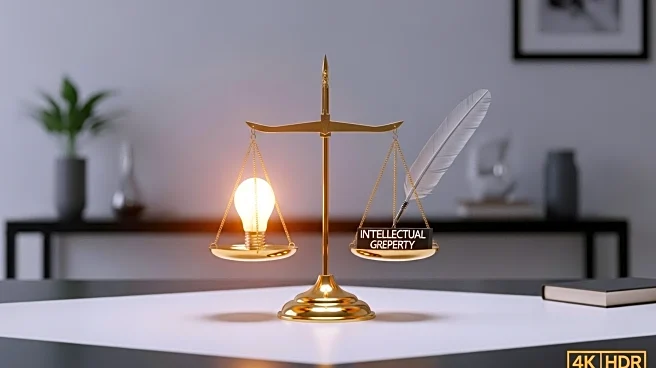What's Happening?
A recent lawsuit filed in California federal court highlights the ongoing issue of copyright infringement in Hollywood. Clarice Eboni Boykin-Patterson, an entertainment reporter, has accused the producers of the Viola Davis film 'G20' of copying her screenplay. Boykin-Patterson's script, titled 'Election Night,' shares several thematic and plot similarities with 'G20,' including a Black female protagonist in politics facing a terrorist threat. The lawsuit argues that these similarities, when aggregated, may constitute infringement. This case is part of a broader trend where creators are increasingly encouraged to pursue legal action over perceived idea theft, despite the high bar for proving such claims.
Why It's Important?
The rise in copyright lawsuits in Hollywood reflects a growing concern among creators about the protection of their intellectual property. These legal battles can have significant implications for the entertainment industry, potentially affecting how scripts are shared and developed. If successful, such lawsuits could lead to stricter vetting processes and more cautious collaboration among writers and producers. However, the high threshold for proving infringement means that many cases may not succeed, leaving creators vulnerable to idea theft. The outcome of these lawsuits could influence industry standards and practices, impacting both established and emerging writers.
What's Next?
The lawsuit against the producers of 'G20' will likely face challenges in court, as proving copyright infringement requires demonstrating substantial similarity and access to the original work. The case may hinge on whether the producers had access to Boykin-Patterson's screenplay, which was submitted to various competitions. As federal appeals courts have encouraged lower courts to allow more copyright cases to proceed, this lawsuit could set a precedent for future claims. The entertainment industry will be watching closely, as the decision could affect how copyright disputes are handled and potentially lead to more creators pursuing legal action.










